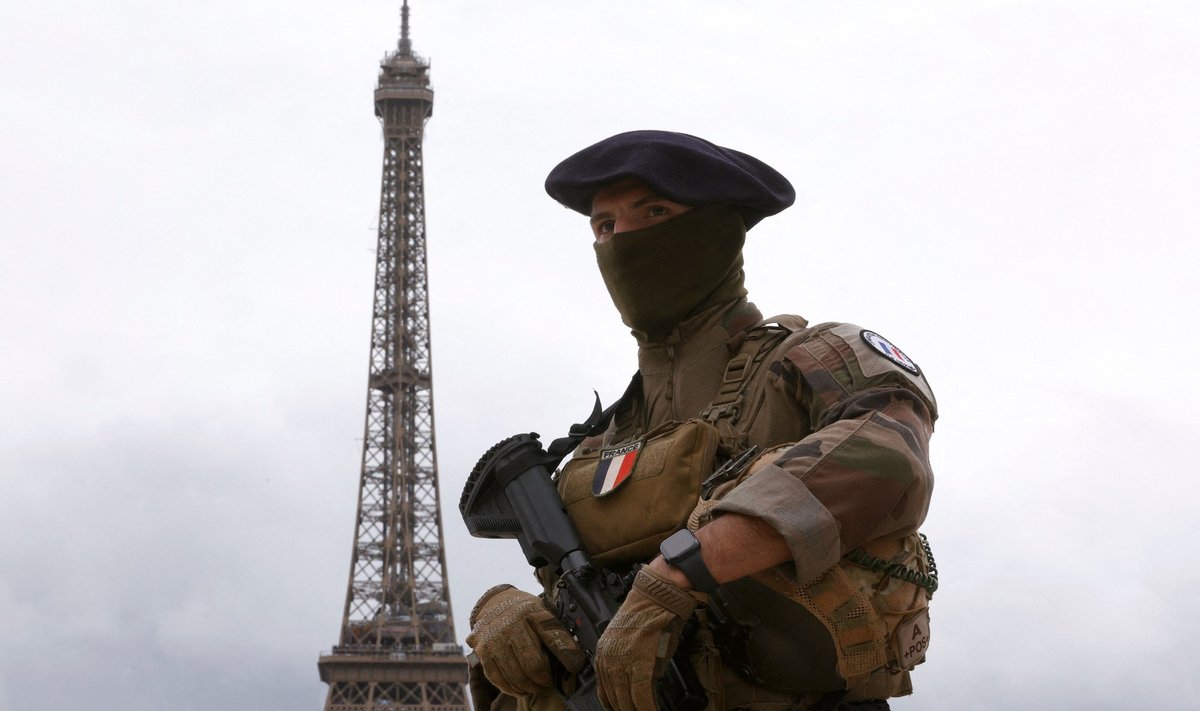On October 13, France declared the maximum level of terrorist threat. What do tourists going there need to know?
In connection with the start of school holidays and the final matches of the Rugby World Cup, thousands of people are planning to travel to France in the coming days, writes Euronews.
However, over the past week, local police have received several false bomb alerts in popular tourist spots. Because of them, airports had to be evacuated several times, which led to interruptions in the movement of air and other transport and caused a lot of trouble for travelers.
Should I be concerned about traveling due to increased security? We have collected the most important things about the situation in France.
Why is France on “high alert for attack”?
Since October 13, the country has declared the maximum level of terrorist threat – Urgence attentat – after a 20-year-old native of Chechnya fatally stabbed a teacher in the city of Arras in northern France.
The most visible consequence of this will likely be an increase in military personnel on the streets. Although there have not yet been any serious disruptions to public transport, it is possible that trains will be delayed or subway lines may be suspended due to the presence of “suspicious objects” or unattended luggage.
“In the history of our country and Europe, transport (networks) have been places where serious terrorist attacks took place,” French Transport Minister Clément Bonnet said on Sunday on France Inter TV.
He added that “people play on fear,” referring to the flurry of reports of bombings that have hit transport networks, schools, and cultural centers in the past week.
All the threats turned out to be false, and none of the foreign policy departments issued a recommendation against traveling to France.
However, given the increased level of danger, travelers are warned about the possibility of evacuating from crowded places such as airports, train stations, and tourist sites.
The Palace of Versailles near Paris was evacuated for security reasons at noon on Sunday for the seventh time in eight days. After two hours of inspections, it was opened, a representative of the press service said.
France strengthens security measures on trains and planes
France is strengthening security measures at the capital’s airports and train stations due to a wave of reports of bombs, Bonnet said on Sunday.
Security patrols at Paris airports will be expanded by 40%, and the number of employees of the national railway company SNCF will be increased by 20%.
In addition, additional police will be on duty at the stations, the minister added.
It has also announced increased security measures for the final two matches of the Rugby World Cup, which will be held at the Stade de France in Paris on October 27 and 28.
Fans are advised to arrive at the stadium early to pass security checks at the entrance.
Where are the false threats coming from?
According to Bonet, since last Wednesday** there have been 70 false bomb threats** at the country’s airports.
Airport evacuations were carried out, leading to disruptions in air travel in cities such as Marseille, Toulouse, and dozens of regional hubs. At least 130 flights were canceled.
Bonet added that almost all of these warnings were sent from the same email address, localized in Switzerland.
“As of Wednesday, the same email address is almost always used, located outside the European Union, in Switzerland,” he said.
These false alerts are punishable by two years imprisonment and a fine of 30,000 euros. If the warning contains a threat, the penalty can increase to three years imprisonment and a fine of 45,000 euros.
Bonet told France Inter that these are not some “petty jokes, but serious crimes” and they will be investigated.

